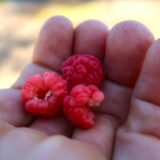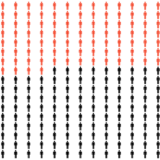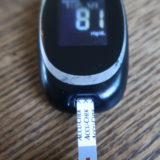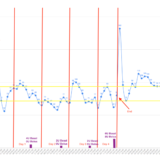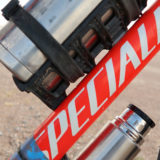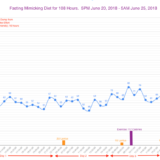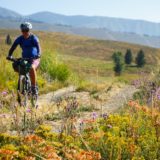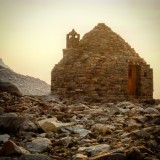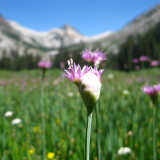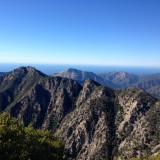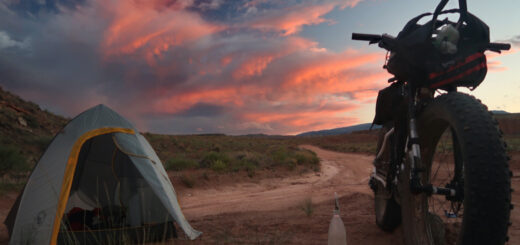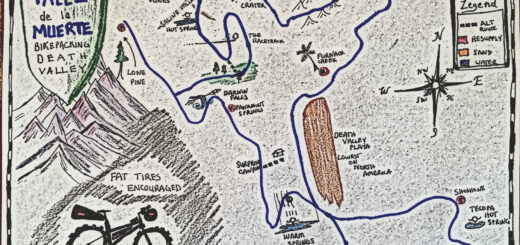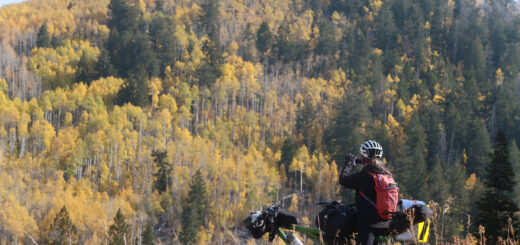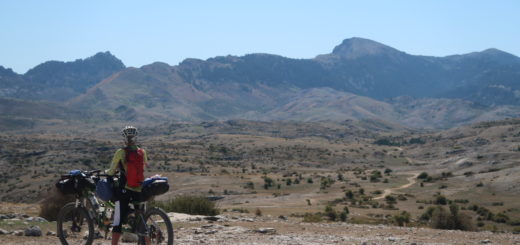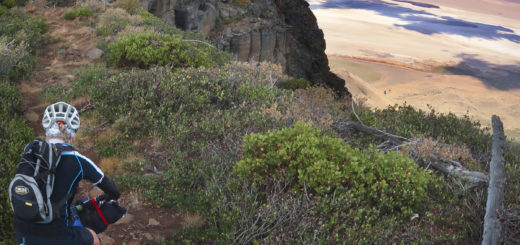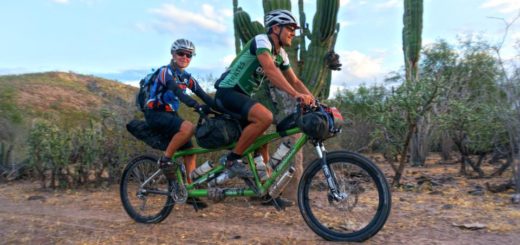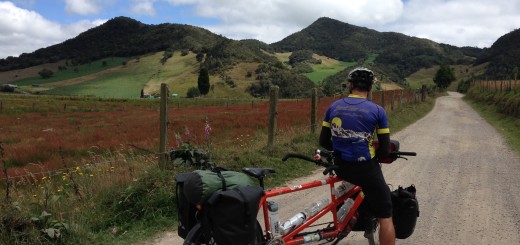01/30/2024 Bikepacking Ghana Day 175 : You are preceded by your whiteness
This is the first of a multi-part essay in which I hope to dive deeper into my experience of West Africa. I recommend reading them in order.
In Africa, from the moment you leave your tent until the time you find a clandestine camp site hidden in the bushes, you are constantly reminded of your whiteness. The local call could be “Toubab,” “Apotho,” “Le Blanc,” “Babou,” or as they say here in Ghana, “Hey White Man!” Once you are South of the Sahara, you can expect to hear your local name more than 50 times per day.
My whiteness dominates the experience of Africa. Being white can automatically add extra service - people will try to do everything for me, from pushing my bike and filling my water bottles to personally showing me how to get somewhere or giving me immediate service at the little road side stalls (sometimes ahead of others who are waiting). It feels extremely kind and welcoming; I feel weird being the recipient of such grace.
Being white also (occasionally) gets me automatic disservices, such as when at a checkpoint or water crossing where a person intentionally delays my passage in the hope I will give them money for “smooth going.”
Finally, being white guarantees that I will get several friend, money and favor requests. For example, today I was walking down an alley and a man sitting in front of his house asked me for money. I apologized that I couldn’t give money to everyone, and walked past the next house. The woman sitting on the stoop of that home had been listening to me talk to the man, and she said, “look, I’m not going to ask you for money. I need you to tell the government to fix this gutter.” She pointed to the enormous 4 foot deep rut that formed the dirt road in front of her house. It was pretty severe, the former road was now walking-only. I told her, “Yes. That rut is pretty bad.” I gave her a smile, and continued on, mentally adding another item to my shopping cart of things to tell the government.
I only stop for about 5 percent of the people who call out to me - and universally, those who call out want my phone number so we can be friends. Imagine if I stopped for everyone? I’ve mentioned this before, but I really want to convey the magnitude of the head turning, staring, and calling out. WhatsApp friends sometimes turn into requests for me to send money (or give a job/take the person to the US). Whenever I write back to the job requests asking, “how specifically can I help you?” The reply is: “give me job. Any job.”
With this in mind, imagine what it would be like to be an African-American on this same bike tour. That person would still be an American with similar culture and values to me, but this imaginary traveler’s experience would undoubtedly be a world apart from mine. Frankly, even with all of the nuisances caused by non-stop attention, I’d still argue that a white man’s experience is a lot more fun. It’s just another example of “white privilege,” I suppose. Although the experience had by either the black or white cycle tourist would be completely different, both would be accurate representations of “Africa.”
With that basic framework, understand that these essays are nothing more than “a white man’s perspective of West Africa.” I plan to spend the next couple posts trying to explain why a Western (as in USA/European western) perspective might be so different from a West African world view.
******
To begin with, let’s define the 4 categories of white people that a person in West Africa might encounter.
1 - Tourists. Tourists are extremely rare in countries like Sierra Leone, Mauritania, (Eastern) Senegal, and Guinea. They are more common in Morocco, Ghana, and (Southern) Ivory Coast. Having said that, it is very important to explain that I have been mostly avoiding places where a tourist would choose to go. Parts of my route could only be traversed by a bicycle or motorcycle, and the vast majority has been on roads or trails that would be painstakingly difficult in a 4 wheeled vehicle. Furthermore, I have intentionally skipped the few “destinations” that can be found in West Africa. Even an intrepid bike tourist on a standard rigid rack-and-pannier setup would have broken racks and pannier attachments by now if they had taken this route. This means that the chance that locals along much of my route have seen a white tourist are very low.
2 - Aid workers. Active Foreign Aid was extremely common in Sierra Leone. There was a smattering of historical foreign aid (evinced by signage) in Senegal, Mauritania, Guinea, Morocco. There seems to be very little foreign aid in Ivory Coast or Ghana (so far). Almost all of the obviously foreign aid vehicles I’ve seen were in Sierra Leone. You may find this surprising, but they were almost always occupied by black people. From what I hear, the foreigners do a lot of the work remotely - either from their home country, or from a “hub” such as Dakar that is more “livable” on a long term basis. As such, the chances of seeing an in-body white aid worker is low in the aid areas, and practically non-existent in the areas that are not receiving aid.
3 - Resource Harvesters. This is mostly people from China. They can be found near mines or places where lumber is being harvested. This was mostly in Guinea, and there were very few, and highly localized to the work sites. Your chances of seeing a white (Chinese) person in the flesh are extremely low.
4 - Television. Unlike all of the above, the majority of visual cinematic, televised, and online visual content is created by white people starring… white people. I have uploaded a screenshot of statistics to verify this. Note that Chinese, Mexican, and Japanese are also simply perceived as “white” in West Africa.
If you put the 4 categories of white people together, the television category eclipses the in-the-flesh experience. In fact, when I’d ask people in remote places, it had often been many years since they had seen a white person. I suspect that the many children who cried or ran away upon seeing me had NEVER seen a real-life white person…. But probably everyone has seen a white person on a screen.
So why does this matter? Because it has a profound effect on how West Africans view the white world.
So let’s get back to all the money/friend requests I receive. My friend Mark Glenesk has suggested a couple times to wear trashy clothes to look poor. More recently saying, “Don't some folks just think you, ‘...don’t have any money’; like a gypsy on a bike”? Others readers have also alluded to this.
If you believe my assertion that the understanding of “white man” in West African villages is almost exclusively from cinematography and television, let’s create a hypothetical story of a white person living in extreme poverty. This will hopefully illustrate why the prevailing belief here is white=money.
Imagine an American film where the protagonist is a single white mother raising 3 children. The family of 4 live in a one bedroom tenement with filth on the walls. Their apartment backs up to the imbalanced washer and drier shared by the whole building, so the walls vibrate all day long. The room is dark because it only has a couple of weak fluorescent bulbs and no window to the outside. There is the smell of gas because the stove has a slight leak. The toilet runs frequently because has a crack and needs repair, and the kitchen faucet also has a bad leak. They live in relative squalor. The mother tries to find work, but mostly relies on food stamps. She is behind on her rent, but for the moment, laws protect her from being evicted. Her kids only wear clothing from the thrift store, and their clothes are looking threadbare. The windows on her beat up jalopy won’t roll up anymore, the bumper has fallen off, and the tires are bald making it unsafe to drive. Her registration is expired, but she chances driving the kids to the public school anyway because she wants them to have a better life.
Does this paint a picture of absolute poverty for you? Let’s try and look at this white woman’s life from the point of view of a West African.
First of all… the car. That automatically makes her wealthy in a world where you get around by walking. If you are able, maybe on the back seat of a motorcycle taxi over the rutted and dusty roads. If her car appears beat up, it’s still in much better condition than a vehicle that has traversed West Africa’s off road conditions. And we haven’t even discussed the wet season when roads are impassable for 6 months.
The impoverished white woman has filth on the walls, but in a West African village, the walls are actually made from mud. The white woman actually has too much water in her home; it’s leaking from both the toilet and the faucet - but at least it’s going down a drain. She does not need to wait in line at the well (or walk long distances to the river when the well is broken). She has electric lighting and a gas stove inside her home! Only one burner works, but she saves massive amounts of time by not having to chop down trees, carry them on her head, and light a fire to do her cooking. This destitute white woman even has a fall-back of government programs that will supply her with enough money to buy food. The least expensive food items also happen to be the most flavorful in her country. Conversely, the cost of sweetened and fattened packaged food eclipses that of the locally available bland options produced by the land in West Africa. There are teachers at the schools, and when the regular teacher falls ill, there are substitutes to fill the gap. Yes, her apartment is messy, but when it gets too messy, she can put things in a container behind the apartment, and they will disappear from view - a stark contrast to the litter that sits in front of huts and surrounds the villages that have no trash removal service. Finally, although the kids’ clothing looks pretty rough, this family really seems to have it made.
Of course, such a forlorn scenario makes up a tiny fraction of the televised content depicting white people; most of the production portrays a MUCH higher standard of living than the hypothetical example. Yet these are often the ONLY white people a person in a West African village will ever see.
Hopefully this slightly elucidates the point of view of a West African villager: White people (no matter how trashy looking) have superfluous financial resources. They have magical powers that enable them fabricate jobs from scratch. White people appear to be on a first-name basis with government officials and can even get them to come fix the ruts in front of peoples’ houses.
In the next episode, I’d like to discuss a theory (presented by an African I met at the start of this trip) as to why people here seem to feel so “at-ease” bestowing these requests.
In Africa, from the moment you leave your tent until the time you find a clandestine camp site hidden in the bushes, you are constantly reminded of your whiteness. The local call could be “Toubab,” “Apotho,” “Le Blanc,” “Babou,” or as they say here in Ghana, “Hey White Man!” Once you are South of the Sahara, you can expect to hear your local name more than 50 times per day.
My whiteness dominates the experience of Africa. Being white can automatically add extra service - people will try to do everything for me, from pushing my bike and filling my water bottles to personally showing me how to get somewhere or giving me immediate service at the little road side stalls (sometimes ahead of others who are waiting). It feels extremely kind and welcoming; I feel weird being the recipient of such grace.
Being white also (occasionally) gets me automatic disservices, such as when at a checkpoint or water crossing where a person intentionally delays my passage in the hope I will give them money for “smooth going.”
Finally, being white guarantees that I will get several friend, money and favor requests. For example, today I was walking down an alley and a man sitting in front of his house asked me for money. I apologized that I couldn’t give money to everyone, and walked past the next house. The woman sitting on the stoop of that home had been listening to me talk to the man, and she said, “look, I’m not going to ask you for money. I need you to tell the government to fix this gutter.” She pointed to the enormous 4 foot deep rut that formed the dirt road in front of her house. It was pretty severe, the former road was now walking-only. I told her, “Yes. That rut is pretty bad.” I gave her a smile, and continued on, mentally adding another item to my shopping cart of things to tell the government.
I only stop for about 5 percent of the people who call out to me - and universally, those who call out want my phone number so we can be friends. Imagine if I stopped for everyone? I’ve mentioned this before, but I really want to convey the magnitude of the head turning, staring, and calling out. WhatsApp friends sometimes turn into requests for me to send money (or give a job/take the person to the US). Whenever I write back to the job requests asking, “how specifically can I help you?” The reply is: “give me job. Any job.”
With this in mind, imagine what it would be like to be an African-American on this same bike tour. That person would still be an American with similar culture and values to me, but this imaginary traveler’s experience would undoubtedly be a world apart from mine. Frankly, even with all of the nuisances caused by non-stop attention, I’d still argue that a white man’s experience is a lot more fun. It’s just another example of “white privilege,” I suppose. Although the experience had by either the black or white cycle tourist would be completely different, both would be accurate representations of “Africa.”
With that basic framework, understand that these essays are nothing more than “a white man’s perspective of West Africa.” I plan to spend the next couple posts trying to explain why a Western (as in USA/European western) perspective might be so different from a West African world view.
******
To begin with, let’s define the 4 categories of white people that a person in West Africa might encounter.
1 - Tourists. Tourists are extremely rare in countries like Sierra Leone, Mauritania, (Eastern) Senegal, and Guinea. They are more common in Morocco, Ghana, and (Southern) Ivory Coast. Having said that, it is very important to explain that I have been mostly avoiding places where a tourist would choose to go. Parts of my route could only be traversed by a bicycle or motorcycle, and the vast majority has been on roads or trails that would be painstakingly difficult in a 4 wheeled vehicle. Furthermore, I have intentionally skipped the few “destinations” that can be found in West Africa. Even an intrepid bike tourist on a standard rigid rack-and-pannier setup would have broken racks and pannier attachments by now if they had taken this route. This means that the chance that locals along much of my route have seen a white tourist are very low.
2 - Aid workers. Active Foreign Aid was extremely common in Sierra Leone. There was a smattering of historical foreign aid (evinced by signage) in Senegal, Mauritania, Guinea, Morocco. There seems to be very little foreign aid in Ivory Coast or Ghana (so far). Almost all of the obviously foreign aid vehicles I’ve seen were in Sierra Leone. You may find this surprising, but they were almost always occupied by black people. From what I hear, the foreigners do a lot of the work remotely - either from their home country, or from a “hub” such as Dakar that is more “livable” on a long term basis. As such, the chances of seeing an in-body white aid worker is low in the aid areas, and practically non-existent in the areas that are not receiving aid.
3 - Resource Harvesters. This is mostly people from China. They can be found near mines or places where lumber is being harvested. This was mostly in Guinea, and there were very few, and highly localized to the work sites. Your chances of seeing a white (Chinese) person in the flesh are extremely low.
4 - Television. Unlike all of the above, the majority of visual cinematic, televised, and online visual content is created by white people starring… white people. I have uploaded a screenshot of statistics to verify this. Note that Chinese, Mexican, and Japanese are also simply perceived as “white” in West Africa.
If you put the 4 categories of white people together, the television category eclipses the in-the-flesh experience. In fact, when I’d ask people in remote places, it had often been many years since they had seen a white person. I suspect that the many children who cried or ran away upon seeing me had NEVER seen a real-life white person…. But probably everyone has seen a white person on a screen.
So why does this matter? Because it has a profound effect on how West Africans view the white world.
So let’s get back to all the money/friend requests I receive. My friend Mark Glenesk has suggested a couple times to wear trashy clothes to look poor. More recently saying, “Don't some folks just think you, ‘...don’t have any money’; like a gypsy on a bike”? Others readers have also alluded to this.
If you believe my assertion that the understanding of “white man” in West African villages is almost exclusively from cinematography and television, let’s create a hypothetical story of a white person living in extreme poverty. This will hopefully illustrate why the prevailing belief here is white=money.
Imagine an American film where the protagonist is a single white mother raising 3 children. The family of 4 live in a one bedroom tenement with filth on the walls. Their apartment backs up to the imbalanced washer and drier shared by the whole building, so the walls vibrate all day long. The room is dark because it only has a couple of weak fluorescent bulbs and no window to the outside. There is the smell of gas because the stove has a slight leak. The toilet runs frequently because has a crack and needs repair, and the kitchen faucet also has a bad leak. They live in relative squalor. The mother tries to find work, but mostly relies on food stamps. She is behind on her rent, but for the moment, laws protect her from being evicted. Her kids only wear clothing from the thrift store, and their clothes are looking threadbare. The windows on her beat up jalopy won’t roll up anymore, the bumper has fallen off, and the tires are bald making it unsafe to drive. Her registration is expired, but she chances driving the kids to the public school anyway because she wants them to have a better life.
Does this paint a picture of absolute poverty for you? Let’s try and look at this white woman’s life from the point of view of a West African.
First of all… the car. That automatically makes her wealthy in a world where you get around by walking. If you are able, maybe on the back seat of a motorcycle taxi over the rutted and dusty roads. If her car appears beat up, it’s still in much better condition than a vehicle that has traversed West Africa’s off road conditions. And we haven’t even discussed the wet season when roads are impassable for 6 months.
The impoverished white woman has filth on the walls, but in a West African village, the walls are actually made from mud. The white woman actually has too much water in her home; it’s leaking from both the toilet and the faucet - but at least it’s going down a drain. She does not need to wait in line at the well (or walk long distances to the river when the well is broken). She has electric lighting and a gas stove inside her home! Only one burner works, but she saves massive amounts of time by not having to chop down trees, carry them on her head, and light a fire to do her cooking. This destitute white woman even has a fall-back of government programs that will supply her with enough money to buy food. The least expensive food items also happen to be the most flavorful in her country. Conversely, the cost of sweetened and fattened packaged food eclipses that of the locally available bland options produced by the land in West Africa. There are teachers at the schools, and when the regular teacher falls ill, there are substitutes to fill the gap. Yes, her apartment is messy, but when it gets too messy, she can put things in a container behind the apartment, and they will disappear from view - a stark contrast to the litter that sits in front of huts and surrounds the villages that have no trash removal service. Finally, although the kids’ clothing looks pretty rough, this family really seems to have it made.
Of course, such a forlorn scenario makes up a tiny fraction of the televised content depicting white people; most of the production portrays a MUCH higher standard of living than the hypothetical example. Yet these are often the ONLY white people a person in a West African village will ever see.
Hopefully this slightly elucidates the point of view of a West African villager: White people (no matter how trashy looking) have superfluous financial resources. They have magical powers that enable them fabricate jobs from scratch. White people appear to be on a first-name basis with government officials and can even get them to come fix the ruts in front of peoples’ houses.
In the next episode, I’d like to discuss a theory (presented by an African I met at the start of this trip) as to why people here seem to feel so “at-ease” bestowing these requests.
Photos:

Today’s primary cycling objective: Fuller Falls.

To go along with today’s narrative, I would also like to emphasize that travel in rural West Africa may be different from what you imagine when you look at a map. A “yellow” road could be a single track trail. A “national highway” can be a maze of walking paths through the savanna. A thick blue road is usually unpaved, rutted, and slow. This slow and difficult travel means that in many places, villagers don’t move or mix as much as they would in places where transport is easier and more affordable. Also, don’t forget that nearly half the year (wet season), many of the unpaved roads are impassable.


The hike to another waterfall called Nchira falls.

Nchira falls (see them back there?)
—
Meet Sampson. He began videoing me, and I asked him to stop. He did not stop. I did not mind that he was videoing, per-se… just that he continued when I asked him not to. Asking him to stop was mostly a “social experiment” on my part. Anyway, I figured I would just video him back, which he did not mind.
Next, he said he wanted my phone number. I came up with a new idea: I asked him, “What is my name?” He remembered right away. I said, “ok! You can have my phone number.”
**I now plan to use this strategy for the rest of the trip. So far we are 1 for 3, with Sampson being the only one who got my number.
I stuck around and was glad I did. He told me that I need to bring American businesses such as factories to Ghana so he and others can work. He said that they are going right now to harvest yams to sell - but the money is very little. In the wet season, they grown corn, tomatoes, and peppers. They eat this, but also sell the extra.
—


Finally, I got a shot of two pigs riding a motorcycle.

This is Masoud. He was very friendly, and here with another guy and a boy. I’m not sure how they were related because we didn’t share a common language… he claimed he was from the nearby town, but I kind of doubt it. I was taking a photo of the falls, and he automatically decided that he should be in the photo! I think his attire adds to the photo, so decided to post the one with him instead of the “naked” falls. He took a whole bunch of “ussies” too.
—


Here we have evidence of
—

Strava Comments:
Mark G.
Blanco! Fantastic first chapter. Glad you got to see some nice falls and use the timed exposure, Nice "road" shots too. btw you are actually a pretty dark white guy.
Carol D.
Thank you for the different frame of references. It is enlightening. No water and no trash removal are pretty big services we are not used to going without.
Janti of the J.
I would imagine from a West African's pov, a guy who made the leisurely choice to ride his bike through Africa must be extremely wealthy... Brian, I think we're all getting more "wealthy" from reading your observations and appreciate your insights and fresh perspective.
Brian L.
Janti of the Jantai - ah, I ought to address this. There is so much nuance and detail! Conversations often start with “where you coming from?” I often hesitate because I can’t always remember the names of towns. They will fill in the blank for me, and I’ll say, “yes!” That is often a sufficient answer which from the local point of view makes some logical sense: Someone rode their bike a few miles. The discussion of the tour can end there and move on to me asking questions…. BUT, if I wait to say, “I rode from Spain” that is when they get shocked. In other words, the readers know that I am doing a “leisurely” 😂 ride. That concept to a local would be like telling someone in 1910 that people have walked on the moon. In many cases people do not know anything about me (including the duration of the voyage). Often the only thing they really know about me before asking for money or my phone number is that I am white. I’m also going to make a post about this, but you will see more beggars in one night in San Francisco than you will see in 90 days in West Africa. The difference in West Africa is that people who do not beg see a white person, drop what they are doing, and ask me for money or a phone number. I’ll delve into the possible “why” of this tomorrow. Tomorrow’s post will get into the “culture” aspect.
Ken Kienow // A.
Walking to get around instead of sitting in a car. Walking to get water, and then pumping the water and carrying it back. Chopping down trees, carrying firewood, and making a fire. Natural-ish foods not crammed with sugar, preservatives, additives, etc. Dealing with one's own trash.
Being poor in Africa sounds a lot more active than being poor in America. Maybe that's why over 40% of Americans are obese. I bet west Africa's obesity rate is somewhere lower than that, and by a lot?
Brian L.
K K - Great point. Actually, I’ve wanted to do a post on “Urban poverty vs Rural poverty.” To me, rural poverty doesn’t look to bad (as long as you don’t need medical care). A quick Google search pegged Americans with a 39% obesity rate. West African rural (the population I’m discussing in these posts) at 4.9% - and that is the “snowballing” rate (so it used to be much lower). From a “riding by in the dry season” perspective, rural poverty looks like USA “family camp.” I know that is a limited perspective- as soon as someone falls Ill or there is a bad harvest or a wicked rainy season, things aren’t so peachy…
Ken Kienow // A.
Yeah - family camping isn't so bad if resources exist to deal with any crises that pop up. Not so fun otherwise though.
Stan H.
Brian your posts have led me to revisit Jared Diamond’s 1997 bestseller “Guns, Germs and Steel” in which he suggests that the reason Eurasian and North American cultures have dominated their southern neighbors technologically and economically is place, not race (my words). That it’s environment, and not genetics. I’m curious about your thoughts on this theory and am looking forward to your next posts.
Brian L.
Stan Hooper Thanks for your comment. I found a synopsis to that book on Wikipedia that was pretty detailed, and got an idea of the subject. Actually, you caused me some concern to re-read my post! Hopefully you also feel that technological and economical “dominance” are tangential to what I have written. If not, I’m going to need an editor, because I don’t want to dip into the topic of “dominance.” You could just as easily argue that a subsistence happy “family camp” lifestyle is “superior” to being depressed and rich in the US… and vice versa.
To answer your curiosity about genetics: I’m not a geneticist, but my career was DNA sequencing, and papers have been written stating that race is not genetic. I think this is based on the fact that all humans share 99.9 percent of their DNA. People posit that if you took a person from one continent and compared the differences with a person on another continent, there would be roughly the same number of genetic differences between two people on the same continent as those from other regions.
An interesting aside, at work one of my customers offered me free “ancestry” sequencing. To do this, they sequence mitochondrial DNA to determine “where you are from”. The mitochondria are thought to be ancient bacteria that hitchhiked into our cells - they have their own separate DNA passed from your mother. So it’s kind of ironic that we use the hitchhiker instead of the autosomal DNA (what you could consider to be “self”) as the marker for geographic origin. Bottom line: nothing is as simple as it humans try and make it out to be!
Hopefully in “The geography of personality” ( https://www.strava.com/activities/10586849584 ) I hinted at my own opinions. Living in a hot and humid environment is tough. In the dry season, you maybe have a few hours a day where you can think straight. Once temps and humidity soar, it is hard to be polite ( like when I cracked: https://www.strava.com/activities/10552944057 )… and it is hard to get any work done. Going back to the “it’s not that simple” concept, I believe that geography influences personality. Your personality influences those around you. Influence enough neighbors, limit contact with outside groups, and now you have a culture. Culture is now a byproduct of both biology (not being able to tolerate heat) and the subsequent attitudes of those around us. Culture can work backwards to influence biology too. For example, cultures that don’t drink milk eventually become lactose intolerant. Ironically, these people still might be able to drink “cultured milk”. 😂
An entire book could be written about this. Oh wait, that has already been done 😆
Stephen Mark R.
Stan Hooper Hope you don't mind a response from me. I really enjoyed the J Diamond book you reference but didn't entirely agree with all his points. I think some fauna and flora native to the Americas (much of which Diamond argues was driven to extinction by the first humans to populate the Americans) could have been domesticated. The notion of race vs place omits culture as a factor. Diamond seemed to me to be heavily focused on arguing against racial differences
Stephen Mark R.
... that he failed to give sufficient consideration of culture. I'm not arguing that any culture is wrong, simply that it drives collective behaviour, that impacts environment which in turn impacts on destiny.
Stan H.
Brian Lucido I was merely mentioning that the book exists and is related to the subject matter of the musings in your posts. You’re right, dominance is too strong a word. You’ve done a great job describing the way things are, such as the lack of material wealth, which are related to technology and economics, and Jared Diamond suggests reasons for them from a broader perspective.
Stan H.
Stephen Mark Richards responses welcome! Love that thanks to Brian we are having this conversation on an activity tracking app! I’d have to reread the entire book to discuss in detail, but I wonder what comes first - environment or culture? I think environment plays a significant role in creating the culture of the people in it, when we are speaking globally. Bringing it back to Strava, I am keenly aware that my environment (California and the American west) has had a large impact on who I am as a person. It has beckoned me to explore it by all modes of travel, human powered and otherwise. I would be a different person if I lived in less geographically diverse place.
Ann L.
Very interesting topics that lead to multiple theories and discussion. It’s amazing how culture and your own personal perspective plays a role in what we consider being “poor”. Totally agree environment plays a huge role in developing a culture. A question I’ve always pondered is who is really happy. I’ve heard once basic human needs are met (food, shelter, water, love) a rich person is really no happier than someone with little money. However it’s obvious that money can buffer stress by creating a more comfortable physical environment and pay for more fun activities. I for one know living on the Central coast has definitely improved my mood. But we adapt to our environment too. It’s just all very interesting. Thanks for documenting your thoughts and observations. It really makes you think.
Stephen Mark R.
Sometimes too much money can take away self-sufficiency. I loved the hydraulic brake hack with the sardine oil. That kind of self-reliance can only add to the sense of adventure. And making a trip like this unsupported. We see celebrities making adventurous journeys but always with the support crew unseen off camera. This is a real adventure.
Sօʀƈɛʀɛʀ 🅅.
Hi Brian. Wow, thank you for the observations, personal insights. Thank you for sharing your personal opinions and interpretations. These people on this planet, so widely distributed, and in deeds so various, in appearance exotic, and in practice hinged upon their environment and culture, are prolific. Your experience Brian is a unique innovation that no one I have ever known personally has undertaken, let alone even conceptualized! In your mode of travel, which combines high technology, human power, courage, ingenuity, empathic capability, risk management, health maintenance, foreign monetary exchange, linguistic challenges, navigational complexity, emotional intensity, discomforts, wildlife exposure, meteorological extremes, and so on and on, you're like some sort of alien from another planet making their way, because the way of life there is so different. You are one of the best candidates for a super-extraterrestrial journey. Your journaism is precious. As the saying goes, "you couldn't paye to do what he does", is probably valid for many of us. But as I read your posts, I realize that compensation of this kind is among many variables in the equation of this kind of tourism. Your remind me of Bernard Moitessier, who sailed around the world solo, in a race, and won, but decided the race wasn't important, and didn't show up at the finish, and instead kept on sailing because that was the best thing to do in his case. Some think he was crazy. Others see something else.
J&K S.
Brian - Its good to get your "overview" summary / analysis. I'm no expert (of course) but culture dominates all other factors, I think. And, in the context of your travel and reports, look at the great differences in the languages and behaviors in the various small "subcultures" / regions / tribal areas, as well as formal countries, you have traveled through. Enormous diversity, even in similar geography / climate / religion, etc. (And, you've been through various climates, elevations, subclimates, etc., and they certainly have an impact, but I'm inclined to think less than culture.) I'll be reading with great interest your next installments!
Megan M.
I've known several Black Americans who are called white, toubab, etc. in West Africa. These terms can transcend skin color. Your hypothetical Black cyclist may escape some of the attention you have received, but you may be surprised how quickly a foreigner is spotted (kind of like how evan freeman can instantly suss out every component on a bike that he passes while riding at 40 mph). 😁
Brian L.
Stan Hooper - I was talking to a guide today, and thought of you. I asked him, “what is your favorite month in Ghana?” This led to a discussion about “if I were a farmer, it would be the rainy season… but if I were a businessman, it would be the dry season.” This is because land transport grinds to a halt during the rainy season. Communities can be cut off for months due to mud. Zero commerce until the mud dries out. In order to develop rapidly, you need commerce, but in order to build roads, you need commerce to fund them…. So you kind of get “stuck in the mud” with this cycle.
Brian L.
Megan McGlinchy - Thank you for your comment. Just so I understand this better, is this something that a Black American told you having been all alone, or is it something you witnessed with your own eyes? The reason I ask is because when I cycled with two different bike clubs, or even as I was walking around town yesterday with a kid named Sylvester, they befell the same treatment as me. In the case of riding with Tenesie, my cycling companions even calmly “dealt with” the situation for me. They weren’t even foreigners, but me being around drew attention to them. This is mostly for my own curiosity, though. Even though my title mentions skin color, that is just what makes me easy to pick out. I think it also puts an asterisk by my experience as the “real” Africa. I’m getting special treatment (mostly good; sometimes bad) wherever I go. The real message I am trying to convey is the part about a West African’s perception of the foreigner from America. I want to juxtapose how extreme the differences are between life in West African villages are and what an American might consider to be poverty. The hope is to tie it into a little digging into the culture aspect (in the next post).. and then eventually discuss what (if anything) we can learn from WA.
Stan H.
Very interesting Brian! My Ghana experience extended to my home in Nevada City yesterday when I went into an import shop. The owner fell in love with Ghana when she hitchhiked across the Sahara in the 1970’s. She’s been visiting regularly ever since and even adopted two Ghanaian boys (one, a man now, I met when he came into the store). So I bought a basket made in Ghana to hold produce on my kitchen counter, inspired by my new appreciation thanks to you. It’s the first time I ever bought a souvenir from someone else’s trip! 😂 🙏 She’ll be there in Accra February 10 if you need a contact.
Megan M.
Brian Lucido good question. My comment was based on discussions with people who have experienced this (I think you are correct about the association factor). The specific comment on being called a toubab was by the Peace Corps Director in Mauritania when I was a volunteer. She is a Black American and was married to a Mauritanian, but still could not get far without being recognized as a foreigner (she was well respected; these were not malicious comments). It was similar for African American volunteers. Interestingly, I probably heard this more from Africans, who would point out Black people and say they were "like me." This included Mauritanians and Senegalese who lived overseas for years and then returned to the village to visit or retire. I think this is a common phenomenon. I've heard (second hand) similar stories of American Latinos who travel to Latin America and are called gringos. I think it just shows the power of culture and lived experiences. On a related note, I enjoyed your description of the four types of white people that West Africans "interact" with (in person or digitally). I agree, but would add one more: Peace Corps Volunteers. Having been both a PCV and a UN worker in Mauritania, I can say that my experiences were very different. In many rural small communities, PCVs may be the only foreigners people meet. They speak the language, live in similar lodgings, work in the fields. I was never called a toubab in my village and, in fact, had to push back against the chief who insisted that I should be able to vote in the elections since, according to him, I was a member of the community (I'm not shy to say that I had a particularly wonderful PC village). For the first time since its inception in the early 60s, all Peace Corps volunteers were evacuated during the pandemic. I understand that a new class of volunteers have been deployed but I think in smaller numbers. I think it would have been interesting for you to cross paths with a volunteer who had been in a community for a while to hear their experiences. It's also possible that my glasses have become increasingly rosier over the decades. 🙂
Brian L.
Stan Hooper - that is a great story! I’ll look forward to seeing the basket when we see you this spring. Also, I’m not surprised she liked Ghana.. people are very nice here. In fact, it feels kind of like… home. I like it. Interesting she adopted two boys. The other day, I found another boy who wants to be adopted.
Brian L.
Megan McGlinchy - thanks for adding to the conversation with a unique perspective that few foreigners will have - spending a longer time with one group. As welcoming as people have been, I still feel “different,” but that isn’t too surprising. That is a legitimate “5th group” to add.. and probably the group that has the most insight too, after a 2 year service! Looking forward to when we meet!
Russell D.
Brian Lucido thanks for sharing. Have you discussed in past posts how you are route finding? How often are you modifying your route? Looks like a lot of meaningful interactions all around for you and your newfound friends and acquaintances. If they knew how far youve come it may only hurt your credibility 😉
Ride Stats:
| Elapsed Time | Moving Time | Distance | Average Speed | Max Speed | Elevation Gain | Calories Burned |
|---|---|---|---|---|---|---|
|
08:22:07
hours
|
04:44:45
hours
|
67.35
km
|
14.19
km/h
|
56.25
km/h
|
1,006.00
meters
|
2,147
kcal
|








